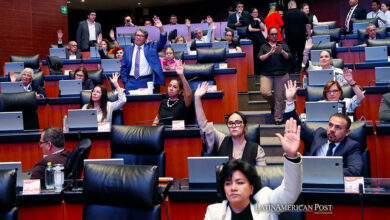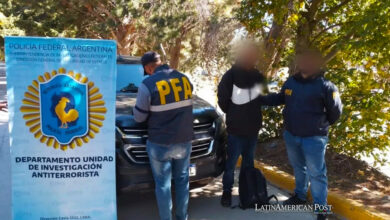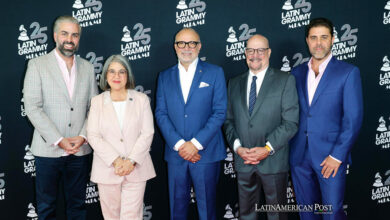Three in one: economic prosperity, environmental protection and social development
The Chocó-Darién Corridor is 13,800 hectares of primary rainforest and it has helped the local community develop through conservation efforts

In Acandí, a small town on the shores of the Caribbean Sea in Colombia is the Chocó – Darién corridor, 13,800 hectares of primary forest, the jungle is under the protection of the communities settled in that area and organized in the “Community Council of the Black communities of the Tolo River Basin and the Southern Coastal Zone “, better known as Cocomasur. Through a laborious conservation project, the advice of the ‘Fondo Acción’ and the decision of several leaders of the region, all the members of Cocomasur decided to guarantee the protection of their native jungle.
Previously these 13,800 hectares were a wasteland, but through a resolution of adjudication, the Colombian government collectively titled this territory for black communities to give it the use that best suits them, in a figure of community government contemplated by the law. The decision was not easy; the possibilities that were opened before his eyes were mining, agriculture, livestock or the exploitation of wood, all involved cutting down the forest, home to thousands of animal and plant species, guarantor of the quality of the air, water supply and many other ecosystem and environmental services.
“For many it was not easy to reject the possibilities to make lots of money through a conventional activity such as cattle, logging or sowing crops, but we made the community decision to protect the forest and earn money through its conservation”, says Everyldis Córdoba, leader of Cocomasur. This brave woman born in Peñaloza, a small village near Acandí, has been the victim of the displacement of illegal armed groups drug traffickers in the border with Panama, but, thanks to the love and the rooting for her land, she always returns with more strength and willingness to serve the community.
However, how does one ensure that forest conservation generates sufficient economic resources for the support of forest keepers? That is the question that everyone began to ask when the idea was first proposed.
Mauricio Salazar Giraldo, Forest Engineer and Environmental Coordinator of Fondo Acción, an NGO dedicated to providing support, advice and support to this type of community development projects, expresses his satisfaction in explaining that the formula “is very simple”. “When we managed to certify that we stopped deforestation, that we have carbon credits for sale in the market and sell them in national or international markets, we bring those resources to Cocomasur to generate employment, health and education”.
The community worked very hard to obtain international certifications that would serve as guarantors to trade their carbon credits in the regulated or voluntary market. “This project chose the most strict standards, because we wanted to measure ourselves in the most demanding way possible and that’s why we chose the VCS (Verified Carbon Standard) certificate and what this certificate guarantees is that this project was stringent in measuring carbon captured and the avoided deforestation. That is, when a buyer sees a carbon bonus from the Chocó-Darién Corridor, can be sure that the emission of that ton of carbon IGNORE INTO the atmosphere was reduced”, says Salazar Giraldo.
They did not only work to take the VCS: “we also obtained in CCB (Climate, Community and Biodiversity), because the biodiversity of the Darien plug is unimaginable. We also show that these communities have very special characteristics, very low levels of development, but very high potential. In this way, the carbon credit that someone buys, that someone supports, has the certificate that was very well measured with the VCS and that supports the community with the CCB “.
For Everyldis Córdoba it is “surprising to obtain economic resources destined to community development protecting the forest, because it is a subject that was not known, in which it was not believed and in which Colombia was far behind when we began to believe that this was a possibility “.
In Colombia, the carbon tax was recently approved, which is levied on industrial production emissions and a “carbon neutrality” decree was issued, which consists in providing the producer with the possibility of not having to pay it and instead the ‘carbon neutrality’ that is nothing more than offsetting the issue by acquiring carbon credits. Mauricio Mira Pontón, director of the Green Markets office of the Ministry of Environment and Sustainable Development in Colombia, explains that “until very recently in Colombia there was no regulation to gain compensation for the carbon footprint, but with the issuance of the decree of ‘carbon neutrality’, at the close of 2017, around 23 million dollars of carbon credits have been negotiated to support this type of initiatives such as Chocó-Darién, which are fundamental for the capture of Greenhouse Gases and the brake on deforestation”.
“Chocó-Darién on the border between Panama and Colombia shows that organized communities can trace their initiatives based on the particular concept of development generating significant economic income, generating social welfare and protecting natural resources, that is sustainability”, said Mira Pontón.
Latin American Post | Alberto Castaño Camacho
Copy edited by Laura Rocha Rueda





